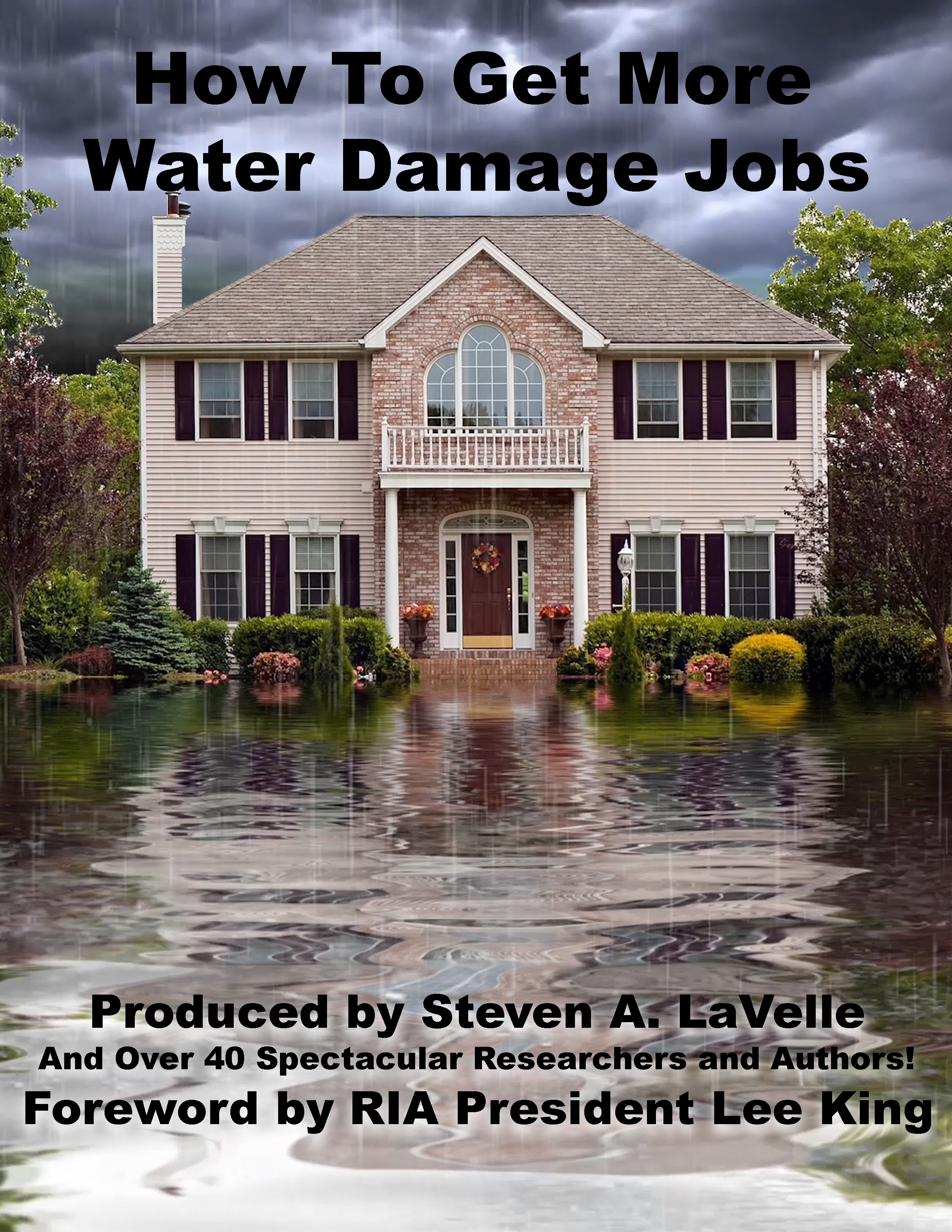Redefining Leadership: Tony Scott’s Purpose-Driven Approach Transforms Restoration Culture

Image provided by KnowHow.
Welcome back to “Building Leaders,” a brand new series from KnowHow that explores how today’s restoration leaders are setting up their teams for success in the future. Inspired by our latest book, Building Leaders, each interview features in-depth conversations—in text and audio—with industry leaders actively preparing their teams to tackle the leadership challenges of tomorrow.
If you want to stay ahead and ensure your team is ready for tomorrow’s challenges, you’re in the right place. Expect real advice, actionable insights, and plenty of takeaways to help you build a team ready for whatever comes next.
Ready to build the leaders of tomorrow?
Tony Scott recalls a defining moment in his life with startling clarity.
“I was sitting on this bluff, watching a beautiful sunset,” he says. “And then I realized that what I thought was a cloud over the city was actually…smog.”
Though pollution was clouding the Vancouver skyline, it gave Tony, founder and CEO of Pro-Claim Group, a rare kind of clarity.
There had to be a better way to lead a restoration company—one that prioritized people, purpose, and lasting impact over quarterly profits.
If he wanted to build a company that would thrive for decades, it couldn't just be about fixing buildings or making superficial changes. It had to be about leading differently, with values that inspired genuine commitment from his team.
That realization led to a harder question: Can I get others to believe in this too? Can I scale a company around a purpose bigger than any one of us?
These are the questions every ambitious leader has to face, sooner or later. Whether your passion is the environment, family values, or overdelivering on someone’s worst day, the real challenge is the same: How do you turn personal conviction into company culture?
Tony answered that challenge the only way he knew how—by rejecting industry norms and building a restoration company where values drive exceptional performance.
Curious to hear more from Tony? Click on the video below to catch the full discussion!
Building A Different Type of Restoration Company
Tony’s mindset didn’t emerge overnight. It was shaped by years spent up close, watching how the restoration industry operated and what it often overlooked.
“I started my company over 30 years ago,” Tony recalls. “Before that, I kind of grew up in restoration. My stepdad was at a restoration company, and back then, it was just big fires and rebuilds.”
At one company, he saw the pitfalls of a narrow focus.
“We were pretty money-focused at a previous company I worked at,” he explains. "Solely money-focused."
When Tony set out on his own, he let his deeply held convictions lead the way.
He began with small, intentional changes: a hybrid car, reclaimed flooring, and non-off-gassing materials. While environmental sustainability was one visible expression of Tony's values, his other passion was creating a purpose-driven company culture that put people first.
This belief took concrete form in how Tony built his team. He focused on shared values and worked relentlessly to attract and retain people who saw the same future he did.
This philosophy resonated with his early team, creating deep loyalty and exceptional service. It worked beautifully—until the company outgrew the power of one person’s passion.
Scaling Culture Without Losing Soul
As Pro-Claim expanded to 40 people, then 100 across multiple offices, Tony faced an unexpected challenge. The culture he had carefully nurtured began to shift.
“We had internal leaders. But they weren’t always leading in the right direction.”
Tony began to see the problem clearly. The managers he’d installed to help carry out his vision weren’t always aligned with him. They had influence over their direct reports, but they were not influencing the company toward the shared purpose he had built.
Left unchecked, that disconnect threatened everything.
The answer wasn’t more control. It was better leadership.
So, Tony got to work. He started building internal HR and leadership development programs—not just to manage people but to reinforce a culture where values guided behavior and purpose shaped performance.
But culture doesn’t start at orientation. It starts at the door. If Pro-Claim was going to protect what made it different, the hiring process had to filter for more than just technical skill.
Hiring People Who Care (About More Than a Paycheque)
Pro-Claim’s approach to recruitment is built around a simple idea: Hire people who are naturally driven to help.
“In restoration, we should be looking for people that enjoy helping others,” Tony explains.
That's why potential applicants are asked about what they’d do if their neighbor had a problem in their house. “If they said, ‘I went over right away to see how I can help,’ that's our guy,” Tony says. If the answer is, ‘I closed the blinds and didn’t get involved,’ that’s not our guy.”
This focus on a deeper motivation has proven particularly effective with younger workers often stereotyped as difficult to manage.
“I always laugh because people say, ‘I don't know how you guys work with Gen Z. They've been here for a month, and they keep asking why they're not the CEO yet.’ I'm like, ‘Yeah, isn't that great? I'd rather hold somebody back a little bit because they’re eager to learn than have somebody who just doesn't want to go anywhere.’”
This guiding principle, Tony shares, also extends to how Pro-Claim structures their incentives.
“We don't have a single commission person in the company. Not project managers. Nobody. And yet we have very committed staff. Long-term people who go the extra mile because doing so matters to them.”
Innovation Through Empathy
Perhaps the most powerful example of the results of Pro-Claim's focus on recruiting for internal motivation comes through a story about a client living with Alzheimer's.
Her house had flooded. The job was straightforward from a technical perspective. But she kept forgetting why strangers were in her home.
“Our team put pictures up beside her bed and on the fridge with pictures of the people that were working on-site with their names,” Tony shares. Every morning she woke up and there was a little note beside the bed: “You had a flood. Here's what's happening.”
No manager instructed them to do this. The crew identified the need and addressed it on their own.
“To me, that's innovation,” Tony shares. “It's not the sexy kind. But that's what our company is built on. If you can achieve that connection between another human being and help them and the team is motivated to come up with these ideas by themselves, that's really where innovation comes from.”
Living Out Pro-Claim’s Values During A Crisis
When COVID-19 struck, Pro-Claim's leadership values faced its greatest test. Tony knew that, amid all the uncertainty, his team's primary concern was financial security.
“One of the first things we said was, everybody gets the same amount of pay, no matter what. Deposit into your bank account every week or the same day every two weeks, same as it always has been; nothing will change.”
This decision came straight from one of Pro-Claim's core principles: “We do what's best for the employee, even when it's hard, especially when it's hard.”
The result? While many restoration companies struggled with keeping staff during the pandemic, Pro-Claim maintained their team and emerged stronger.
A Place People Want to Work
These days, Pro-Claim job ads include a bold statement of their values-driven culture. The results?
“A 230% increase in qualified candidates,” Tony shares. “We do group interviews now. Six or eight people at once. People want to work somewhere they can be proud of.”
That pride also comes with a path. Tony makes sure of it.
“People want to know how to succeed, so we show them. We don’t make them ask for a raise. They learn new skills, and they automatically get paid more.”
Final Takeaways for Building Tomorrow's Leaders
After three decades in restoration, Tony has developed leadership insights that don't just work today but are also designed for tomorrow's workforce:
-
Focus on intrinsic motivation. “If you want discretionary effort, that comes from internal motivation,” Tony explains. External rewards like commissions create ceiling effects on performance.
-
Hire for values alignment. Look for people who naturally want to help others. "If your neighbor had a problem and you went over right away to help, that's our person."
-
See the human first. “If you see another person as a human being, it makes it much easier for you to empathize,” Tony says. This applies to both employees and customers.
-
Create clear growth paths. "Gen Z workers want a clear path to know how they're going to get to success," Tony notes. “We have a system where as people learn new things, they immediately automatically get wage increases.”
- Lead with empathy during a crisis. When challenges arise, focus first on what employees truly need. As Tony puts it: “Do what's best for the employee, even when it's hard, especially when it's hard.”
For restoration companies struggling with today's workforce challenges, Tony's approach offers a compelling alternative to traditional management methods. By building a culture around purpose and intrinsic motivation rather than financial incentives, Pro-Claim Group has created a company where people want to work—and where innovation happens naturally.
“It's just really what you choose to do and what method you choose to go by,” Tony concludes. “We choose this method.”
And the reward for that is a company where doing good work is its own reward. Where passion drives performance. And where culture isn’t a poster on the wall.
It’s the work itself.
For more insights from Tony Scott and 13 more restoration leaders, explore our full interview series on YouTube or check out the new audiobook. You should also check out our previous episode with Steve Glozik to learn more about his relentless pursuit of excellence at FP Restoration.
See you next month for more Building Leaders! For more resources on succession planning or scaling your operation, check out KnowHow.Looking for a reprint of this article?
From high-res PDFs to custom plaques, order your copy today!







